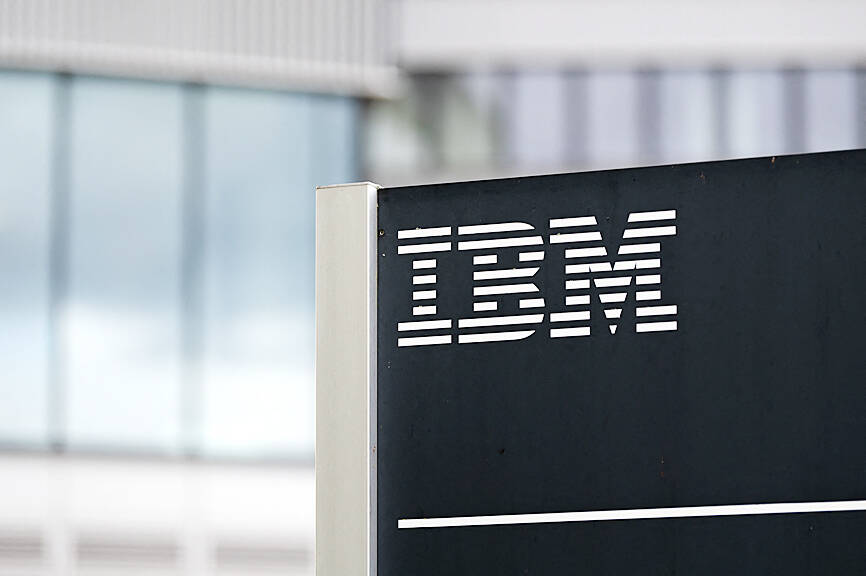Technology giant IBM Corp announced plans yesterday to invest US$150 billion in the US over five years, including US$30 billion earmarked for research and development to bolster manufacturing of mainframe and quantum computers.
"Technology doesn’t just build the future — it defines it," IBM chairman and CEO Arvind Krishna said in a statement.
The investment, which comes as US President Donald Trump puts pressure on companies to invest in the United States, aims to cement IBM’s position as "the epicenter of the world’s most advanced computing and AI capabilities," Krishna added.

Photo: Silas Stein, AFP
Over the past five years, IBM reported about US$33.6 billion in research and development spending globally. Its total operational expenses in that time frame were US$141.8 billion.
Corporate giants, including Apple Inc, Nvidia Corp and Hyundai Motor Co, have announced major spending plans in the US since Trump returned to the White House in January, though some of that investment was already in the pipeline.
Trump earlier this month unveiled an unprecedented wave of tariff hikes in his effort to push US companies to shift manufacturing home.
The US president has since put most of the tariffs on hold, as worries grow about their severe impact on the US economy, though massive levies remain on China.
IBM stressed in its statement its "unwavering commitment to the future of American innovation, igniting new economic opportunity in the United States and around the world."
The 114-year-old company — which has trailed the dominant players Microsoft Corp, Amazon.com Inc and Google in recent years — emphasized that it operates the world’s largest fleet of quantum computing systems, which is seen as technology’s next frontier.

NEW IDENTITY: Known for its software, India has expanded into hardware, with its semiconductor industry growing from US$38bn in 2023 to US$45bn to US$50bn India on Saturday inaugurated its first semiconductor assembly and test facility, a milestone in the government’s push to reduce dependence on foreign chipmakers and stake a claim in a sector dominated by China. Indian Prime Minister Narendra Modi opened US firm Micron Technology Inc’s semiconductor assembly, test and packaging unit in his home state of Gujarat, hailing the “dawn of a new era” for India’s technology ambitions. “When young Indians look back in the future, they will see this decade as the turning point in our tech future,” Modi told the event, which was broadcast on his YouTube channel. The plant would convert

‘SEISMIC SHIFT’: The researcher forecast there would be about 1.1 billion mobile shipments this year, down from 1.26 billion the prior year and erasing years of gains The global smartphone market is expected to contract 12.9 percent this year due to the unprecedented memorychip shortage, marking “a crisis like no other,” researcher International Data Corp (IDC) said. The new forecast, a dramatic revision down from earlier estimates, gives the latest accounting of the ongoing memory crunch that is affecting every corner of the electronics industry. The demand for advanced memory to power artificial intelligence (AI) tasks has drained global supply until well into next year and jeopardizes the business model of many smartphone makers. IDC forecast about 1.1 billion mobile shipments this year, down from 1.26 billion the prior

People stand in a Pokemon store in Tokyo on Thursday. One of the world highest-grossing franchises is celebrated its 30th anniversary yesterday.

Zimbabwe’s ban on raw lithium exports is forcing Chinese miners to rethink their strategy, speeding up plans to process the metal locally instead of shipping it to China’s vast rechargeable battery industry. The country is Africa’s largest lithium producer and has one of the world’s largest reserves, according to the US Geological Survey (USGS). Zimbabwe already banned the export of lithium ore in 2022 and last year announced it would halt exports of lithium concentrates from January next year. However, on Wednesday it imposed the ban with immediate effect, leaving unclear what the lithium mining sector would do in the